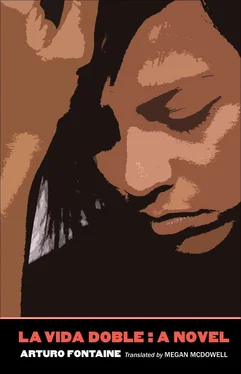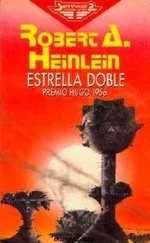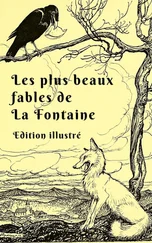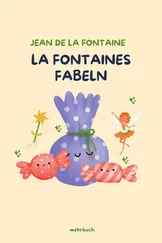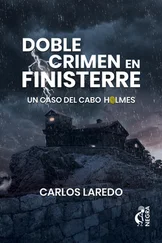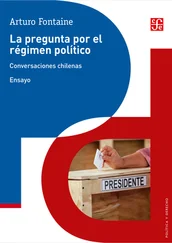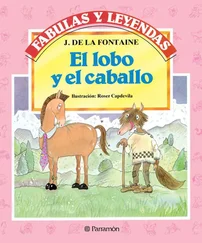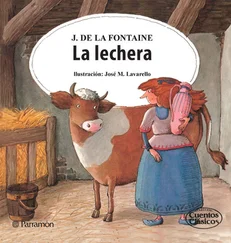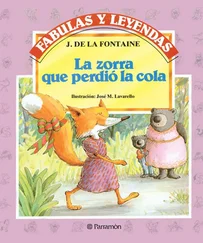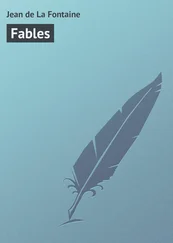In the doorway the argument went on. We couldn’t hear what they were saying very well, but she seemed beside herself. A red vein was pulsing in her forehead. Macha’s head was bowed.
“Why do they argue so much?”
“It’s ’cause my mom doesn’t want to let me go to Yelcho with my dad over vacation. But don’t worry. This always happens. I’m going to have to convince her myself, later on.”
A friend of Cristóbal’s came over and I took the opportunity to say good-bye. Macha and his ex-wife had moved away from the door and were still wrapped up in their argument. He was trembling like a rabbit. I didn’t have any problems leaving without them seeing me. When I got to my apartment, I opened a can of beer, threw myself on the bed, and turned on the TV. A slow, boring movie. My mind wandered.
I thought the noise of the lock was coming from that bad movie, so I was terrified when I heard footsteps in the living room. The door to my room opened: Macha. While my heart was doing somersaults he showed me his lock pick and smiled. He made some delicious hot ham and cheese sandwiches that we devoured with a couple of beers, and I made Turkish coffee.
I asked him why he was so afraid of that witch. We were on the black leather sofa and I could smell his animal smell. He told me it was because of the boy, because of Cristóbal; his mother tried to keep them apart, she was furious at the poor kid for wanting to be with his father. So she punished him out of pure malice, and of course that only made Cristóbal want to be with his father more. But there was nothing to be done about it. The law gave custody to the mother.
He told me that she ran her house with “managerial” efficiency. Cristóbal was very lonely, he said. He had almost no friends. Macha was afraid of her power to do damage, even if she damaged herself in the process. She didn’t give a shit. She was a vengeful and bitter woman. That’s how he saw her. And Cristóbal had insomnia, he had terrifying nightmares. And Macha was never there with him. He had given him a short-wave radio and Cristóbal kept it on his bedside table. He loved that, being a radio ham. That way they could talk at any hour of the night. But when he had insomnia or nightmares or problems with his mother, Cristóbal didn’t call him, he said. He didn’t understand why.
He asked me for another beer and he drank it quickly. Then he started taking photos of me. I walked around the apartment pursued by the lens of his Minolta. I sat down, ran, looked out the window, I rested my head on the back of a chair, I knelt down, looked at myself in the bathroom mirror, I got up onto the sofa. Behind his Minolta, his beard cut even with the skin — a close, level, bluish beard — and his cleft chin. I touched his arm as I said something, or I said “you” with a pointed finger on his chest. A few long hairs were peeking out of the neck of his shirt. His smell welcomed me now. His intimacy. Like I’d entered into his cave. He gaze held mine. I knew what was going to happen. Maybe.
And he was following me and saying: “Hold up your hair, like that, pull it back.” And he was saying: “What will make a face like yours pretty?” And: “What do you feel when you’re on the motorcycle going full speed?” And: “Don’t laugh.” And I held back my laughter for an instant, fighting with it until I gave in. And as soon as the laughter escaped, again, in a soft and very low voice, coming from under his moustache black as coal: “Don’t laugh.” And those were, he would tell me later, the best pictures.
“I like your boots, that rough material. .”
“Buffalo,” he says. “From Argentina.”
And suddenly:
“What do you know about Bone?”
“Maybe something, maybe nothing,” I say. His hand is removing the lens. “I know he’s the one who coordinates the organization.”
“We all know that. Get me another beer,” he says, leaving the camera on the table in the living room. We’re face to face. We clink glasses. I feel that at that moment I matter to him.
“Tell me something,” I say. “I’m still an intellectual, you know? A spectator of life. I’ve never killed anyone. What’s it like? What happens to you inside?”
I actually dared to ask him that candid question. Macha Carrasco, you know, gave the impression that he was one of those people who doesn’t ever doubt. His actions didn’t arise from mental deliberation but from a throbbing, a dark compulsion. That’s why I asked him that. I would never have asked it of a banal Eichmann-style bureaucrat of extermination — because of course, Central was full of those little gray ants in the service of terror.
“It depends,” Macha tells me calmly. I’m looking at his eyelashes, the lashes of a pony. “The first time you kill, you kill two men with the same bullet. The one you kill and the one you were up until then. They don’t teach you that at the Military Intelligence School.”
“And afterward?”
“Afterward? Then nothing ever makes you feel more alive than killing again. At the same time: it’s dirty, there’s nothing romantic about it. Never. The enemy, once he’s dead, was never your enemy. He looks like a pathetic accident victim.”
He fixes his eyes on me. When he looks at you like that there’s nothing else in the world but you and him.
“I heard a story once. Canelo told it to me.”
And I know I shouldn’t tell him what I’m going to tell him. Why? I contradict myself. I try to control myself. It’s a familiar vertigo by now, the one that’s taking hold of me. I can’t resist the temptation to tell him something I know, something Canelo told me, something Canelo shouldn’t have told me just as I shouldn’t tell Macha this secret now. But revealing a secret is delicious.
“He talked to me one night about this extraordinary guy,” I tell him. “Attractive and brilliant,” I say. “A born leader. He’d just gotten his degree in medicine, Canelo told me, and he was chosen to go to Cuba. In the seventies. First in his class at Camilo Cienfuegos Military School. Everyone who knew him at that time agreed that he was destined for great things. His maturity in spite of how young he was, his theoretical and strategic knowledge, his specialization in clandestine struggle and sabotage, his physical dexterity, his political ability, his integrity, his innate intelligence, his kindness. He was the best of all of us, Canelo told me. Until the night of the accident. No one, they say, had his charisma.
“It was at a party, the graduation party for his class at the Havana Libre Hotel. You know, the old Hilton hotel during the time of Batista, with its great hall, its gigantic dome lit up over the pool. He was headed for the Bolivian sierra. He would leave two days later to fight alongside Che. He was going as a military doctor, no less. He was talking animatedly — very animatedly — with a very beautiful woman. Then they were dancing. Then their arms were around each other and they were looking at each other and smiling for no reason, and then it seemed like they were about to kiss or maybe they were already kissing.
“A mahogany table went rolling across the floor, with its old tablecloth of good, mended cotton, and then everything was crashing plates and smashing glasses. There was a shot and a window shattered. A captain of the armed forces was aiming his gun at the Chilean. There was a movement too violent and fast to be described, a feint, a jump, and an expert kick, and the jealous man fell to the floor. His 9mm Makarov PMM slid across the floor.
“You could have chewed the silence. All the students focused on the steel that was waiting there on the floor. The young Chilean official moved slowly over to it. His adversary, behind him and to one side, was getting up with difficulty. You could hear his footsteps on the cream-colored ceramic tiles of the Havana Libre Hotel. He was going to pick up the Cuban captain’s Makarov, his steps sure and calm. His new black boots of a recently graduated official creaked.
Читать дальше
